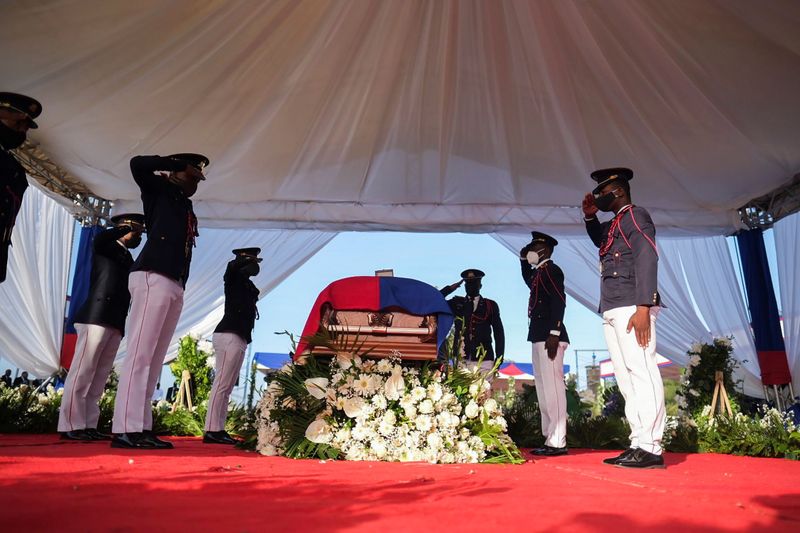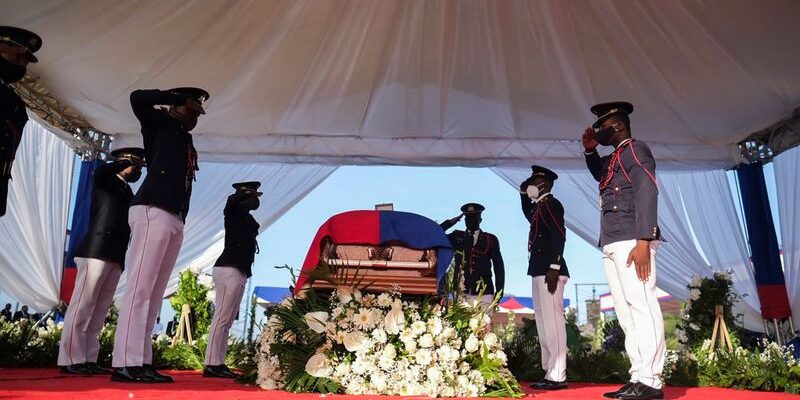
Pallbearers in military attire salute next to a coffin holding the body of late Haitian President Jovenel Moise after he was shot dead at his home in Port-au-Prince earlier this month, in Cap-Haitien, July 23, 2021. REUTERS/Ricardo Arduengo
Pallbearers in military attire surrounded late Haitian President Jovenel Moise’s body in a closed wooden coffin as his funeral got underway on Friday (July 23), two weeks after he was shot dead at home in an assassination still shrouded in mystery.
The bearers placed the polished casket on a dais garlanded with flowers in an auditorium, and a Haitian flag was draped on top of the coffin.
Foreign dignitaries, including U.S. President Joe Biden’s top advisor for the Western Hemisphere, flew to Cap-Haitien to pay their respects to Moise, joining mourners who have taken part in a series of commemorations in Haiti this week.
Moise was gunned down in his home in Port-au-Prince before dawn on July 7, setting off a new political crisis in the Caribbean country that has struggled with poverty, lawlessness, and instability.
Protests by angry supporters of Moise convulsed the slain leader’s hometown, the northern city of Cap-Haitien, for a second successive day on Thursday as workers prepared for the funeral.
The protesters set tires on fire to block roads, while workers paved a brick road to Moise’s mausoleum on a dusty plot of several acres enclosed by high walls.
Set on land held by Moise’s family and where he lived as a boy, the partly built tomb stood in the shade of fruit trees, just a few steps from a mausoleum for Moise’s father, who died last year. Police controlled access to the compound through a single gate.
The assassination was a reminder of the ongoing influence foreign actors have in the poorest country in the Western Hemisphere despite it becoming Latin America and the Caribbean’s first independent state at the start of the 19th century.
The attack was carried out by a group that included 26 Colombian former soldiers, at least six of whom had previously received U.S. military training. Haitian-Americans were also among the accused.
The attack’s plotters disguised the mercenaries as U.S. Drug Enforcement Administration agents, a ruse that helped them enter Moise’s home with no resistance from his security detail, authorities have said. At least one of the arrested men, a Haitian-American, had previously worked as an informant for the DEA.
The turmoil has pushed Haiti up Biden’s foreign policy priorities and on Thursday (July 22) the State Department named a special envoy for the country. Biden has rebuffed a request by Haiti’s interim leaders to send troops to protect infrastructure.

Comments